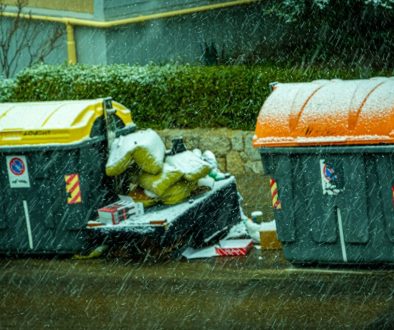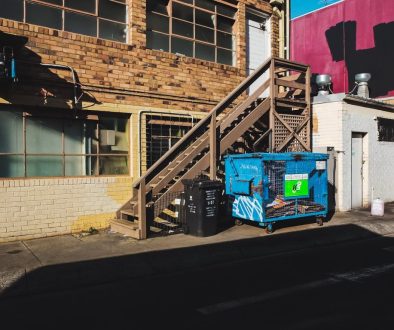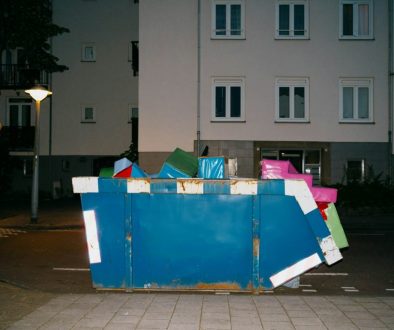Construction projects are vital for the development and progress of our society. However, it is critical to ensure that these projects do not harm the environment. The production of waste is an inevitable by-product of construction projects, and the disposal of such waste can have a significant impact on the environment. Therefore, it is essential to follow the best waste disposal practices to ensure that the environment is not harmed.
Planning and Designing
The first step in ensuring efficient waste disposal is to plan and design the project with waste management in mind. This involves identifying the type and amount of waste that will be generated during the construction phase.
The project team should carry out a waste assessment to determine the waste types, quantities, and disposal methods. This information will help in developing a waste management plan that will detail the procedures for the collection, storage, transportation, and disposal of waste generated during the project.
Segregation and Separation
The segregation and separation of waste are crucial to ensure efficient waste management. Waste generated during construction projects is typically mixed, making it difficult to dispose of effectively.
Segregation and separation of waste at source will make it easier to recycle and dispose of waste. The waste can be segregated into categories such as metals, plastics, wood, paper, and rubble. This will help in identifying the recyclable and non-recyclable waste and the appropriate disposal methods.
Recycling
Recycling is an effective way to reduce the amount of waste generated during construction projects. Materials such as concrete, metal, and plastics can be recycled and reused in other construction projects. Recycling also helps conserve natural resources and reduce the environmental impact of waste disposal. The project team should ensure that the recyclable waste is collected, sorted, and transported to the recycling facility.
Reuse
Reuse is another way to reduce the amount of waste generated during construction projects. Materials such as bricks, concrete, and timber can be reused in other construction projects. The project team should identify materials that can be reused and ensure that they are stored and transported safely to the site where they will be reused.
Disposal
Disposal is the final step in the waste management process. The project team should ensure that the waste is disposed of in an environmentally friendly manner. The disposal method will depend on the type of waste and the local regulations.
The waste can be disposed of in a landfill or incinerator, but these methods are not environmentally friendly. It is best to dispose of waste at a waste transfer station, where the trash can be sorted and recycled or disposed of in a landfill.
Waste Management Plan
A waste management plan is a crucial document that outlines the procedures for the collection, storage, transportation, and disposal of waste generated during a construction project.
The waste management plan should be developed during the planning and design phase and should be updated regularly to reflect any changes in waste management procedures. The waste management plan should be communicated to all stakeholders to ensure that everyone is aware of their roles and responsibilities in waste management.
Training and Education
Training and education are essential in ensuring that the waste management plan is effectively implemented. The project team should be trained in waste management procedures, and regular training should be provided to ensure that everyone is aware of the best waste disposal practices. The project team should also educate the workers on the importance of waste management and the environmental impact of waste disposal.
Lean Construction Practices
Lean construction practices are a set of principles that aim to minimize waste and maximize efficiency in construction projects. This can be achieved by using prefabricated components, reducing material waste, and optimizing construction schedules. By implementing lean construction practices, waste can be minimized, and construction projects can be carried out more efficiently.
Regular Audits
Regular waste audits can help to identify areas where waste reduction can be made. Waste audits involve assessing the types and quantities of waste generated, identifying areas where waste can be reduced, and implementing measures to reduce waste. Conducting regular waste audits can help to ensure that waste management practices are effective and can identify areas where improvements can be made.
Using Sustainable Materials
Using sustainable materials can help to reduce the environmental impact of construction projects. Sustainable materials such as bamboo, recycled plastic, and timber from sustainable sources can be used in construction projects. These materials are renewable, biodegradable, and have a lower carbon footprint than traditional construction materials. By using sustainable materials, construction projects can be carried out in a more environmentally friendly manner.
Waste Generation
In addition to segregating and separating waste, it is vital to minimize waste generation in the first place. This can be achieved by using materials that have minimal packaging and by avoiding over-ordering or overestimating material requirements. Using modular designs that can be easily disassembled and reassembled can also help to reduce waste.
New Technologies
Technology can be a valuable tool in waste management. For example, using construction waste management software can help to track waste generation, monitor waste disposal, and identify areas where waste reduction can be made. The use of drones and other technological tools can also help to identify areas where waste is being generated, allowing for more effective waste management.
Recycling Facilities
Partnering with local recycling facilities can help ensure that waste is disposed of in an environmentally friendly manner. Recycling facilities can provide guidance on waste management practices and can assist with the collection and transportation of waste. Building a relationship with a recycling facility can also lead to cost savings and can help to promote sustainable construction practices.
Closing Thoughts
Efficient waste disposal practices are critical in ensuring that construction projects do not harm the environment. A waste management plan should be developed, and training and education should be provided to the project team to ensure that the program is effectively implemented. By following these and other waste disposal best practices, construction projects can be carried out while protecting the environment.
Do you need to hire a skip? Rely on Enviro Skip Hire, a family-run skip hire and aggregate company servicing Staffordshire. Check out our wide range of skip sizes and aggregates. Choose your skip!




